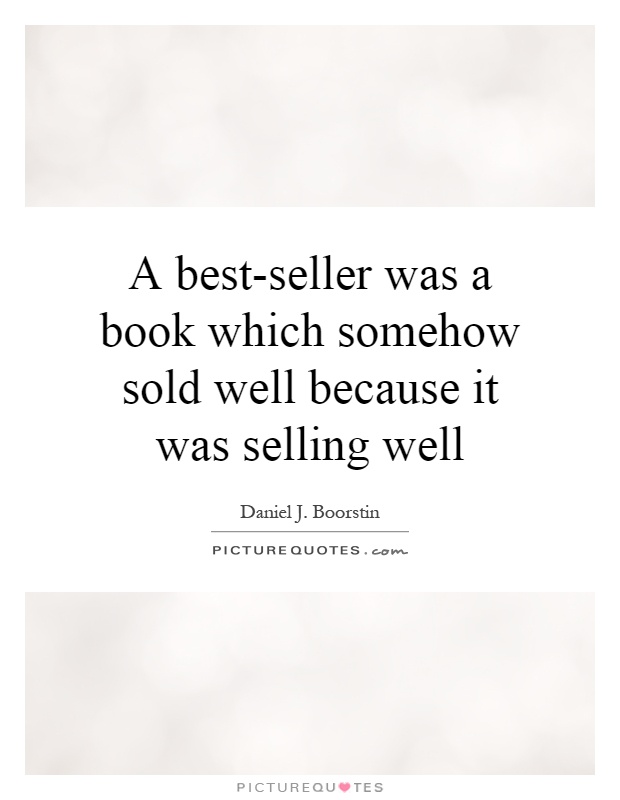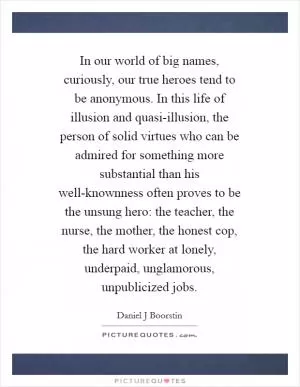A best-seller was a book which somehow sold well because it was selling well

A best-seller was a book which somehow sold well because it was selling well
Daniel J. Boorstin, an American historian, once famously said, "A best-seller was a book which somehow sold well because it was selling well." This statement perfectly encapsulates the phenomenon of best-selling books and the complex interplay of factors that contribute to their success.In the world of literature, a best-seller is a book that has achieved widespread popularity and high sales figures. However, the reasons behind a book becoming a best-seller are often multifaceted and not always easy to pinpoint. Boorstin's assertion that a book sells well because it is already selling well speaks to the idea of momentum and the power of word-of-mouth and social influence in driving book sales.
One of the key factors that contribute to a book's success is marketing and publicity. Publishers invest significant resources in promoting their books through advertising, book tours, and media appearances. A well-executed marketing campaign can generate buzz and create a sense of anticipation around a book, leading to increased sales. Once a book gains momentum and starts to sell well, it can attract even more attention and continue to climb the best-seller lists.
Another important factor in the success of a best-selling book is the power of recommendations and reviews. In today's digital age, online platforms such as Goodreads and Amazon play a crucial role in shaping readers' opinions and influencing their purchasing decisions. Positive reviews and recommendations from influential sources can help propel a book to the top of the best-seller charts.
Furthermore, the concept of social proof also plays a significant role in the success of best-selling books. When a book is widely perceived as popular and successful, it can create a sense of FOMO (fear of missing out) among readers, prompting them to jump on the bandwagon and purchase a copy for themselves. This phenomenon is often referred to as the "Herd Mentality" and can be a powerful driver of book sales.












 Friendship Quotes
Friendship Quotes Love Quotes
Love Quotes Life Quotes
Life Quotes Funny Quotes
Funny Quotes Motivational Quotes
Motivational Quotes Inspirational Quotes
Inspirational Quotes